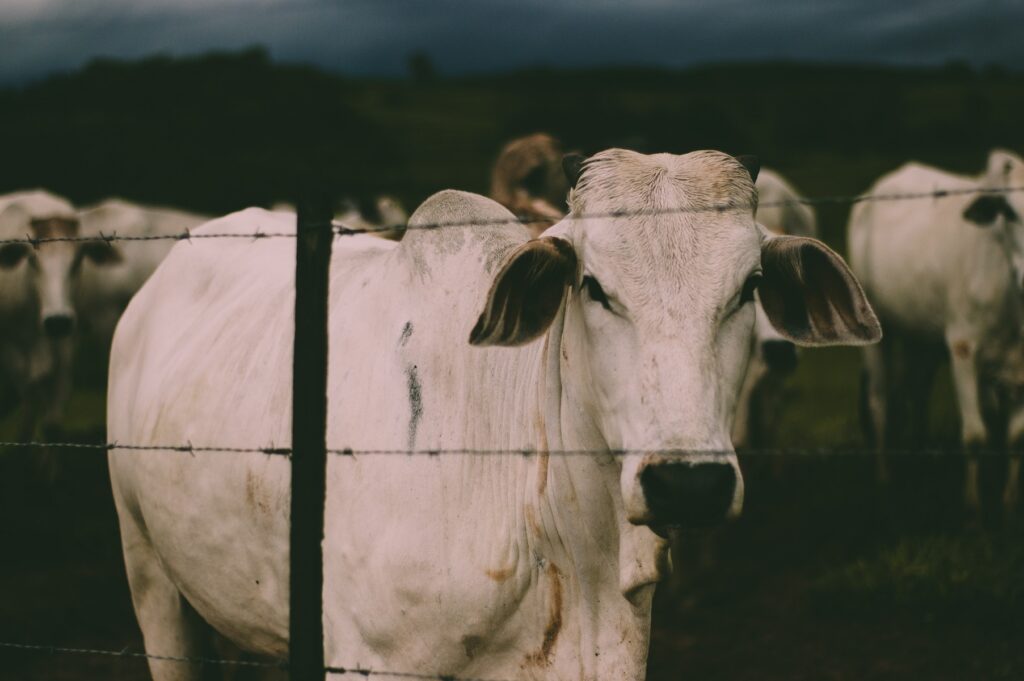Brazilian producers insist their agriculture is sustainable despite reports of deforestation
Officials from Brazil have insisted that their food production and exports are sustainable, despite concerns about deforestation linked to agriculture in the country.
Speaking at the most recent edition of SIAL Paris, representatives of producers insisted that the country was preserving its forests while increasing output and sales around the globe.
Ricardo Santin, present of the Brazilian Association of Animal Protein, also claimed that chicken production in Brazil had a lower carbon footprint than that in the UK, even after taking into account transport costs to Europe.
“Brazil has one of the most sustainable productions in the world,” he said during a session at SIAL Paris in October 2022.
Concerns about deforestation in the country and its link to the rearing of cattle and the growing of soya beans have been widely reported.
Under the previous president, Jair Bolsonaro, annual deforestation rates increased 60%, media reports indicated.

Cattle ranching is one of Brazil’s biggest agricultural sectors. Photo credit: Feliphe Shiarolli / Unsplash
According to figures quoted by the environmental organisation WWF, cattle ranching accounts for 80% of deforestation in the Amazon region.
As well as the effect on the natural environment, this deforestation is said to be a major releaser of carbon, with WWF stating that deforestation from cattle ranching causes 340 million tonnes of carbon to be released each year. This, the organisation, says, is the equivalent of 3.4% of global carbon emissions.
However, during the discussion event at SIAL Paris, Cinthia Torres, technical director of the Brazilian Beef Exporters Association (ABIEC), insisted that forests were not being harmed by cattle ranching.
“We try to bring a little more information, real information,” she told audience members. “Brazil is planting trees. Brazil has a crop, livestock and forest integration system, which makes us planting forests, planting crops and raising cattle in renewable land use.
“We don’t have to make deforestation in Amazonia because we’re able to produce without this. In Brazil we use only 30% of the territory for [agriculture]; 70% is preserved.”
She said that beef production in the country had increased by 109% while the amount of land used for pasture decreased by 15%. One factor behind this, she said, was shortening the food production cycle.
“We are shortening the cycle of the cattle. We used to kill animals with 50 months, 48 months, 36 months. Now we are in 30 months,” he said.
The representatives said that the export of Brazilian produce created jobs in Europe among local processors, who were able to add value.

Deforestation in the Amazon region is a major concern among environmentalists. Photo credit: Johnatan Misael / Unsplash
Citing figures that he said came from the UK Department for Environment, Food and Rural Affairs (Defra), Mr Santin said that chicken production in Brazil had a lower carbon footprint than that in the UK, even accounting for the carbon emissions of transport across the Atlantic.
A 2020 report from WWF, Carbon Footprint: Exploring the UK’s contribution to climate change, discussed the carbon footprint of UK and Brazilian poultry production.
“Poultry production in Brazil has been found to have 25% lower energy requirements compared to UK-based product, mainly due to local soya feed (i.e. less transport), naturally ventilated poultry houses and lower housing requirements,” the report stated, citing research published in 2013.
Echoing comments from Ms Torres, Mr Santin insisted that forest protection in Brazil was strong and said that agricultural production had grown without the use of more land.
Much of the discussion was focussed on sales to the European Union and these account for a much lower proportion of Brazilian food exports than in the past.
This, the representatives said, however, was primarily because Brazil’s food exports to other markets, notably Africa and Asia, have increased significantly in recent decades, rather than because of a decline in in exports to the EU in absolute terms.
Join us at SIAL Paris as exhibitor Join us at SIAL Paris as visitor
